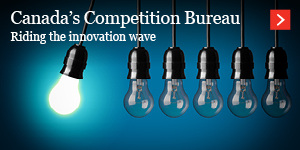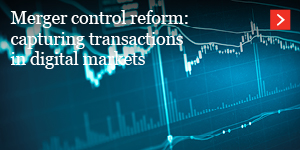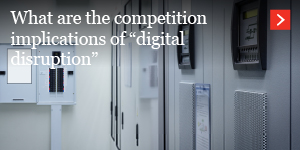From the editor
Welcome to our third edition of Competition World in 2016 focusing on technology. Our teams from around the world share their insights into the role of technology in investigations, how technology is being manipulated by cartelists, how policy is evolving to keep up with technological advancements and the competition implications of digital disruption, among other hot topics.
We start in North America, examining the powers that antitrust and competition authorities have to seize data located on foreign servers. In the United States, the courts recently ruled definitively that Microsoft did not have to produce emails hosted on a server outside the US. We review the Microsoft opinion, consider its impact on whether antitrust authorities can obtain data located on foreign servers, and discuss the approaches of the Canadian and the European competition authorities on this issue.
Next, we examine Canada’s evolving innovation agenda and its impact on competition policy, from the Competition Bureau’s commitment to keeping pace with the changes wrought by new technologies and business innovations on the Canadian marketplace to the recent decisional practice of the Competition Tribunal assessing the impact of anti-competitive conduct on innovation.
As we move across to Europe, we comment first on a recent UK cartel case involving online retailers who used the tools of their trade to coordinate their activities. The companies in question relied upon a specific computer algorithm that coordinated changes in their respective prices for wall posters to implement and maintain the cartel. We comment on the speed with which the case was dispatched, the support provided by the US authorities and the increased scrutiny likely to be faced by online retailers fuelled by this case.
We then ask whether proposals in Germany to extend the scope of its national merger control regime to capture digital deals offers a helpful blueprint for Europe. The fact that deals, such as Facebook/WhatsApp, do not qualify for review under traditional turnover-based thresholds has driven German legislators to propose the introduction of a value-based threshold which would permit the authorities to review a deal where the parties have no or low turnover but which has the potential to impact competition. The European Commission is now consulting on similar proposals.
Turning to France, we examine the joint report by the German and French competition authorities, “Competition Law and Data” and discuss the role of big data as a source of power and transparency in markets.
Next, we look more generally at the competition issues arising as a result of emerging digital technologies and examine the competition implications of ‘digital disruption’ and how the competition landscape is likely to evolve in future years.
Finally, we look at competition issues in nascent technology markets focusing specifically on blockchain technologies and examining four key issues: the difference between competition in the market and for the market; the adoption of technical standards; the gating effect for participating in a permissioned blockchain; and the potential scope for blockchain to be used as a method to facilitate collusive behavior.
For more frequent updates, you can also follow us on Twitter. We are https://twitter.com/NLawGlobal
Martin Coleman
Editor
Global Head of Antitrust and Competition
martin.coleman@nortonrosefulbright.com
Contents




















